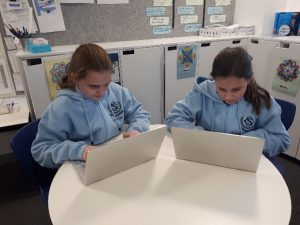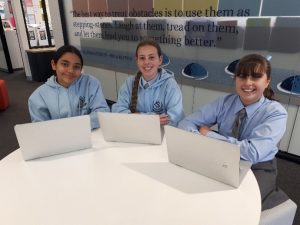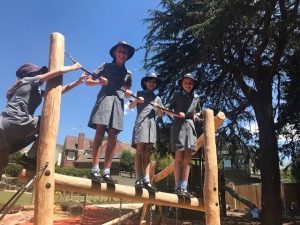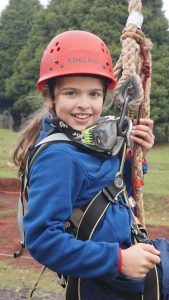Combating ‘Fragility’ in Children

In a recent visit to Australia, American social psychologist, Professor Jonathan Haidt, raised concerns about the fragility of children today, saying that in the future we will not see them ‘setting off with a backpack and a one-way plane ticket’, as has been the tradition for generations before. He says that his prediction is based on his observation that too many of today’s children are ‘coddled’ or ‘over-protected’, resulting in a generation being risk-adverse and feeling ‘alien from the world they have built themselves online’. He also raised concerns about young people displaying characteristics of depression such as black and white thinking, catastrophising and quickly jumping to decisions.
While according to Haidt, this is the growing trend in America, we can learn from and consider some of his observations, as often Australia follows in America’s footsteps. We know that today, we have moved into a more protective parental style in contrast to that of older generations when children would have breakfast and be on their bikes, with lunch and water in their bags, exploring the neighbourhood, building cubbies and tree houses, and returning by dinner time. Our world has become more populated and more connected, and we are more aware through our easy and constant access to the media that there are threats to our children’s wellbeing and welfare. So how do we strike a balance between being protective and wanting them to develop the social, emotional and physical skills and attitudes that come from free play and safe risk-taking? How do we help them develop skills such as decision making, safe risk taking, collaboration, team building, experiencing failure and success, trust, confidence rather than fear, as well as being able to ride a bike, climb a tree, build a cubby and slide down a hill? The answer is to give them the opportunities to do these things while in a safe environment.
At Barbreck, our playground is designed for girls to be able to climb, balance, explore, imagine, run, kick a ball, slide, step and much more. There are various levels of structures and they can make their way to higher levels as their size and skill develops.
They are encouraged to think about the emotions they feel and learn how to self-regulate when things do not go their way. They face challenges and experience success and failure in a supportive and safe environment. They can take risks and evaluate and learn from the outcomes.
Our Junior School camps are designed to give girls experiences such as damper making around a fire they built, sharing living quarters with others, team building exercises and facing challenges when they attempt something they have not done before. The more they do these types of activities, the more they are better able to handle situations. They learn to: realise their own ability and capacity; be analytical; find the things they need to watch out for or be cautious of; practise decision making when the stakes are not real; evaluate the risk to themselves, others or property; and develop the real life skills of interacting and working with others.
These skills reduce the likelihood of impulsive decision making and risk-taking in their adolescent years when they find themselves away from safe environments. The development of these skills builds the rite of passage for children, so we know they are prepared to enter the real world as confident, capable adults.
Ms Karen McArdle, Head of Junior School
Reference:
The Sydney Morning Herald, 26 July 2019, https://www.smh.com.au/education/really-disastrous-the-fragility-epidemic-that-could-change-australia-20190726-p52b3j.html
Year 6
The Year 6 students have been learning about ‘Digital Citizenship’ during their Wellbeing classes. They have discussed how language used online can be perceived in different ways by various people.

The St Catherine’s Year 6 students have been learning about ‘Digital Citizenship’ in their Wellbeing classes.
They also discovered the importance of body language, facial expressions and tone, and how important it is to not only watch one’s own body language when speaking to someone in person, but on the other hand, to also be careful of what messages they put online. They will continue to learn about generally accepted social protocols when sharing information in online environments and reflect on what information is safe to share with people online.





